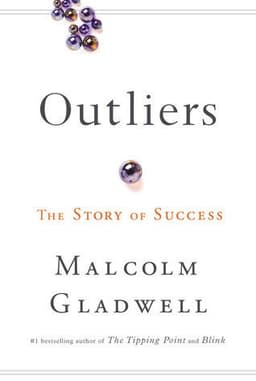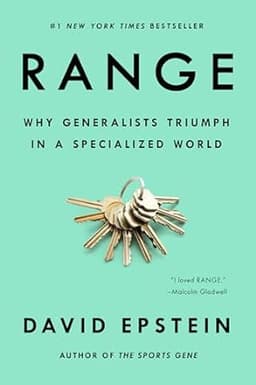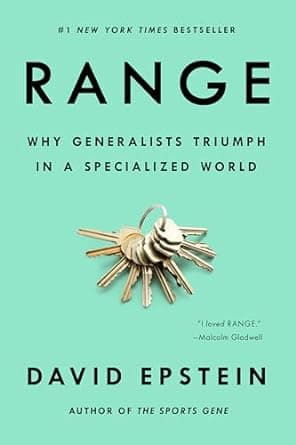
Outliers Book Summary
The Story of Success
Book by Malcolm Gladwell
Summary
Outliers looks into the lives of exceptional individuals, uncovering the often-overlooked factors that contribute to their success. It challenges the notion of the "self-made" individual, highlighting the crucial role of opportunity, cultural legacies, and hidden advantages in shaping the path to achievement.
Sign in to rate
Average Rating: 5
Forget the simplistic narratives of self-made individuals and innate talent. Success is not solely determined by personal attributes. It's deeply intertwined with the context in which we are born and raised. Our opportunities, cultural background, and even birthdates play a significant, and often underestimated, role in shaping our achievements. This book delves into the hidden advantages and legacies that propel certain individuals to the top, challenging conventional notions of success.
1. Opportunity
The Matthew Effect: How Advantage Accumulates and Creates Outliers
The Matthew Effect, inspired by a biblical verse, highlights the phenomenon of accumulative advantage. Individuals who demonstrate early success are often granted further opportunities that amplify their initial edge, leading to even greater achievements. This creates a snowball effect, where small initial differences are magnified over time, resulting in the emergence of outliers. Examples like Canadian hockey illustrate how arbitrary factors, such as birth month and age cut-offs, can significantly impact long-term success.
Section: 1, Chapter: 1
January Babies and Hockey Success
In Canadian hockey, a disproportionate number of elite players are born in the early months of the year. This is due to the January 1st age cut-off for youth hockey leagues. Players born closer to this date have a physical advantage over their younger peers, leading to increased selection for all-star teams, better coaching, and more practice time. This accumulative advantage compounds over time, resulting in a significant over-representation of January-born players at the highest levels of the sport.
Section: 1, Chapter: 1
10,000 Hours to Mastery: The Role of Practice in Achieving Expertise
Extensive research across various domains, from music to chess to sports, reveals a common thread: achieving world-class expertise requires approximately 10,000 hours of deliberate practice. This challenges the notion of innate talent as the primary driver of success and emphasizes the importance of consistent, dedicated effort in developing mastery.
Section: 1, Chapter: 2
Practice
“Practice isn't the thing you do once you're good. It's the thing you do that makes you good.”
Section: 1, Chapter: 2
The Beatles and the Hamburg Crucible
The Beatles' early success can be attributed, in part, to their extensive performance experience in Hamburg, Germany. Playing for long hours in demanding conditions honed their musical skills, stage presence, and teamwork, laying the foundation for their later achievements. This period of intense practice exemplifies the 10,000-hour rule and demonstrates the crucial role of opportunity in shaping success.
Section: 1, Chapter: 2
Bill Gates and the Lakeside Advantage
Bill Gates's path to success was paved with a series of extraordinary opportunities. Attending Lakeside School, one of the few institutions with a time-sharing computer terminal in the late 1960s, granted him early access to programming and thousands of hours of practice. This unique environment, coupled with his talent and drive, played a pivotal role in his rise to prominence in the software industry.
Section: 1, Chapter: 2
Beyond IQ: Rethinking Our Obsession with Genius
Our fascination with geniuses often leads us to equate intelligence with success. However, research suggests that while IQ is important up to a certain threshold, beyond that point, other factors play a more significant role in determining achievement. This challenges the notion that exceptionally high IQ guarantees success and encourages a broader perspective on the qualities that contribute to outstanding accomplishments.
Section: 1, Chapter: 3
Smart Enough is All You Need
Studies have shown that the correlation between IQ and success diminishes beyond an IQ of around 120. This suggests a threshold effect, where individuals above this level possess sufficient intelligence to excel, and additional IQ points do not translate into a significant advantage in real-world achievements.
Section: 0, Chapter: 3
Where Nobel Prize Winners Went to College
Contrary to popular belief, Nobel Prize winners in science do not exclusively come from the most prestigious universities. A significant number of laureates received their undergraduate degrees from lesser-known colleges, highlighting that attending an elite institution is not a prerequisite for achieving the highest levels of success in these fields.
Section: 1, Chapter: 3
Divergent Thinking and the Power of Creativity
Divergent thinking, the ability to generate multiple and unique ideas, is a crucial aspect of creativity and problem-solving. Divergence tests, which measure this type of thinking, may be better predictors of success in fields that demand innovation and originality than traditional IQ tests.
Try listing as many uses as you can think of for a brick and a blanket.
This exercise assesses your divergent thinking abilities and demonstrates the difference between analytical intelligence and creative thinking.
Section: 1, Chapter: 3
The Missed Opportunity of Terman's Termites
Lewis Terman's longitudinal study of gifted children, known as the "Termites," revealed a surprising finding: Despite their exceptional IQs, many of the participants did not achieve extraordinary success as adults. This highlights the limitations of relying solely on IQ as a predictor of achievement and underscores the importance of considering other factors, such as environmental influences and cultural background.
Section: 1, Chapter: 4
Concerted Cultivation vs. Natural Growth
Concerted Cultivation: Middle-class families often engage in concerted cultivation, actively fostering their children's talents and skills through organized activities, reasoning, and intervention in institutional settings. This approach instills a sense of entitlement and empowers children to navigate the world effectively.
Natural Growth: Working-class and poor families typically follow a strategy of natural growth, providing care and support but allowing children to develop more independently. This can lead to a sense of constraint and difficulty in navigating institutional settings.
Section: 1, Chapter: 4
Chris Langan: A Case of Wasted Potential
Chris Langan, known for his exceptionally high IQ, faced significant challenges due to his impoverished upbringing and lack of practical intelligence. Despite his intellectual gifts, he struggled to navigate the academic and professional world, highlighting the importance of social and cultural capital in achieving success.
Section: 0, Chapter: 3
Robert Oppenheimer: Genius with Practical Intelligence
Robert Oppenheimer, a brilliant physicist who led the Manhattan Project, exemplifies the combination of high IQ and practical intelligence. His privileged upbringing and education equipped him with the social skills and cultural capital necessary to navigate complex environments and achieve extraordinary success.
Section: 1, Chapter: 4
Unraveling the Success of Joe Flom
Joe Flom's rise to prominence as a lawyer exemplifies the complex interplay of cultural background, historical context, and individual effort in achieving success. His Jewish heritage, initially a barrier to entry in the WASP-dominated world of Wall Street law firms, ultimately became an advantage, leading him to specialize in the then-marginalized field of hostile takeovers. Born during a demographic trough, Flom benefited from a robust public education system and a favorable job market. Furthermore, his upbringing within a culture of meaningful work, shaped by the entrepreneurial spirit of the garment industry, instilled values of hard work, autonomy, and a direct link between effort and reward. These factors, combined with Flom's talent and ambition, positioned him perfectly to capitalize on the rise of mergers and acquisitions in the 1970s and 1980s, solidifying his status as a legal powerhouse. Flom's story underscores the significance of cultural legacies and opportune timing in shaping individual achievement and challenges the simplistic notion of success as solely a product of personal merit.
Section: 1, Chapter: 5
What Makes Satisfying Work
“Those three things - autonomy, complexity, and a connection between effort and reward - are, most people will agree, the three qualities that work has to have if it is to be satisfying.”
Section: 1, Chapter: 5
2. Legacy
Decoding the Violence: The Culture of Honor in Appalachia
The feuds in Harlan, Kentucky, and other areas of Appalachia were not isolated incidents but part of a larger pattern rooted in a "culture of honor."
- Cultures of honor, often found in herding communities with limited resources, emphasize reputation and require individuals to respond aggressively to any perceived slights or challenges.
- This cultural legacy originated from the Scotch-Irish settlers of Appalachia, who brought their warrior ethic and traditions of clan loyalty from the borderlands of Britain.
- The culture of honor helps explain the South's distinct patterns of criminality, with higher rates of personal violence but lower rates of property crime.
Section: 2, Chapter: 6
Beyond Individual Error: Cultural Influences on Plane Crashes
Korean Air's history of plane crashes in the 1980s and 1990s wasn't solely due to technical failures or pilot incompetence.
Many crashes resulted from an accumulation of small errors, often related to communication and teamwork issues in the cockpit.
A key factor was the cultural legacy of high power distance in Korea, which made it difficult for first officers to challenge captains or assert their concerns effectively.
This is exemplified by the Avianca Flight 052 crash, where the Colombian first officer's mitigated speech and deference to authority hindered clear communication with air traffic control.
Section: 2, Chapter: 7
Learning from Rice Paddies: The Power of Meaningful Work and Effort
Rice farming, like the garment industry discussed earlier, exemplifies meaningful work with a clear link between effort and reward, complexity, and autonomy. The demanding nature of rice cultivation fostered a culture of hard work, persistence, and a strong connection between effort and reward.
This emphasis on hard work and persistence translates into a cultural advantage for math, as seen in the superior performance of Asian students on international tests.
Gladwell challenges the assumption of innate math ability and suggests that cultural legacies and attitudes toward effort play a significant role in shaping math skills.
Section: 2, Chapter: 8
Bridging the Achievement Gap
The KIPP Academy in the South Bronx demonstrates the impact of addressing cultural legacies and learning patterns on academic achievement.
- KIPP students, primarily from low-income, minority backgrounds, achieve exceptional results in math, outperforming their peers in traditional public schools.
- The key to KIPP's success lies in its extended learning time, including a longer school day, Saturday classes, and a shorter summer break.
- This approach counters the learning loss experienced by disadvantaged students during the long summer vacation, as highlighted in Karl Alexander's research.
Section: 2, Chapter: 9
Related Content


Range Book Summary
David Epstein
"Range" challenges the conventional wisdom that early specialization is the key to success. Instead, Epstein argues that in our increasingly complex and unpredictable world, it is those with broad experience and diverse skills who are best equipped to thrive.
"Range" challenges the conventional wisdom that early specialization is the key to success. Instead, Epstein argues that in our increasingly complex and unpredictable world, it is those with broad experience and diverse skills who are best equipped to thrive.
Personal Development
Learning
Psychology

